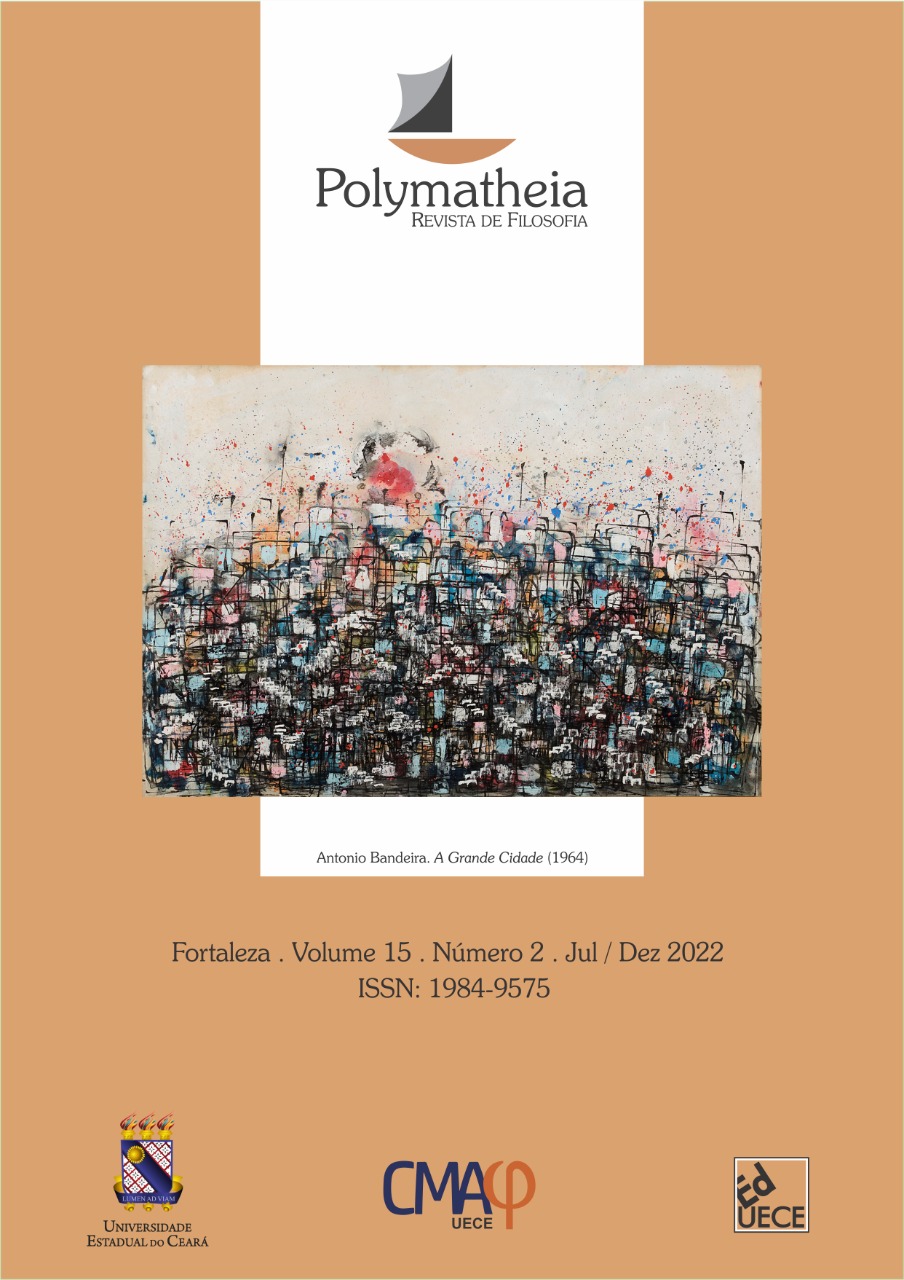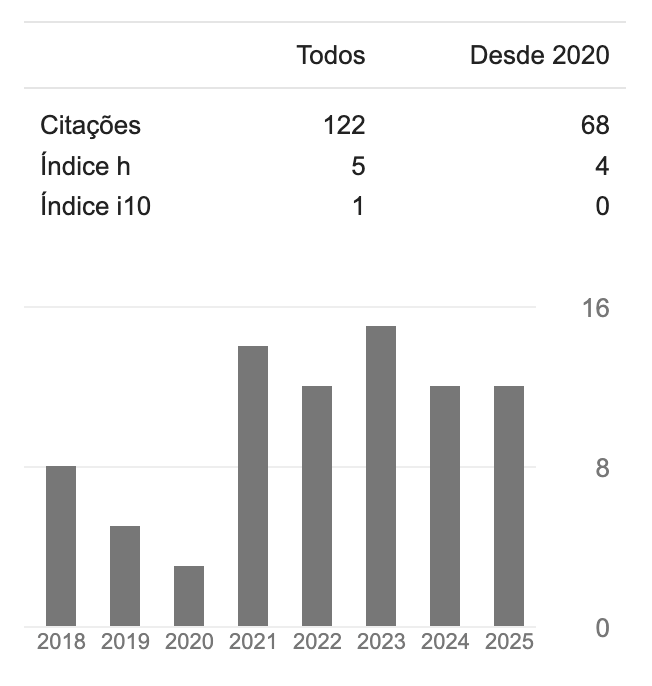Acerca da multiplicidade de belezas no Banquete de Platão
Parole chiave:
Beleza, Eros, Platão, Scala AmorisAbstract
O objetivo deste artigo é defender uma leitura “inclusiva” da Scala Amoris (210a-212b) presente no Banquete de Platão, na qual o amante, em sua ascensão, incorpora um número cada vez maior de objetos belos em sua esfera de preocupação erótica. Neste sentido, posiciono-me de forma contrária à leitura “exclusiva”, na qual tal ascensão implicaria o abandono do que fora anteriormente desejado.
Downloads
Riferimenti bibliografici
PLATÃO. Banquete. Tradução de José Cavalcante de Souza. São Paulo: 34, 2016.
________. Opera. Recognovit breviqve adnotatione critica instrvxit: Iohannes Burnet. Tomvs II e III. Oxford: Typographeo Clarendoniano, 1900.
________. Plato: Complete works. Edited, with introduction and notes by John M. Cooper; associate editor, D.S. Hutchinson. Indianapolis: Hackett Publishing Company, 1997.
________. The Symposium. With introduction, critical notes and commentary by R. G. Bury. Cambridge: Simpkin, Marshall & Co., Ltd., 1909.
CORNFORD, F. M. The Doctrine of Eros in Plato’s Symposium. In: G. Vlastos (ed.), Plato II: Ethics, Politics, and Philosophy of Art and Religion, Anchor Books, New York, 119‑31, 1972.
FERRARI, G. R. Platonic Love. In: R. Kraut (ed.), The Cambridge Companion to Plato, Cambridge University Press, Cambridge, 248 76, 2008.
HOOPER, A. Scaling the Ladder. Why the Final Step of the Lover’s Ascent is a Generalizing Step. In: Plato Journal. 15. 95-106. 10.14195/2183-4105_15_6, 2015.
LIDDELL, H. G.; SCOTT, R., Jones, H. S., & McKenzie, R. A Greek-English lexicon. Oxford: Clarendon Press, 1940.
MORAVCSIK, J. M. E. Reason and Eros in the “Ascent”‑Passage of the Symposium. In: J. Anton and G. Kustas (eds.), Essays in Ancient Greek Philosophy, State University of New York Press, Albany, 285‑301, 1972.
NIGHTINGALE, A. W. Spectacles of truth in classical Greek philosophy: theoria in its cultural context. Cambridge, U.K., Cambridge University Press, 2004.
NUSSBAUM, M. The Ascent of Love: Plato, Spinoza, Proust. In: New Literary History 25.4, 925 949, 1994.











